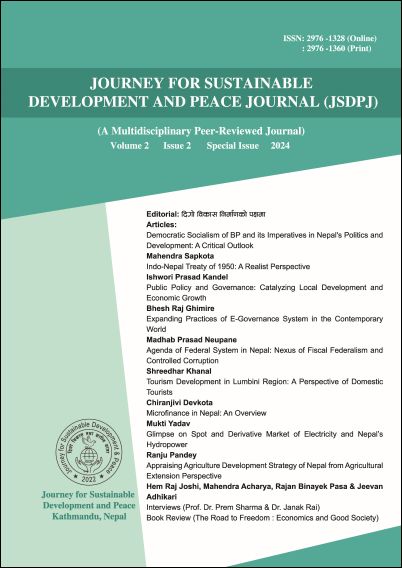Expanding Practices of E-Governance System in the Contemporary World
DOI:
https://doi.org/10.3126/jsdpj.v2i2.69570Keywords:
E-governance, ICT, Nepal, digital divide, governance models, implementation challenges, systematic literature reviewAbstract
E-governance marks a significant transformation in public administration by incorporating Information and Communication Technology (ICT) to improve government operations and enhance citizen interaction. This paper offers an extensive review and synthesis of empirical issues and practices related to e-governance worldwide, with a particular emphasis on Nepal. Through a systematic literature review, the study explores academic articles, books, and reports to uncover critical themes in e-governance frameworks, challenges in implementation, and overall effectiveness. Key findings reveal ICT's pivotal role in modernizing governance, the varying success of e-governance policies across nations, and specific challenges encountered in Nepal, including insufficient infrastructure, low levels of ICT literacy, and political instability. The paper identifies several research gaps, such as the need for detailed data from rural areas, the creation of a tailored digitalization strategy for Nepal, and a comprehensive examination of both the benefits and drawbacks of ICT in governance. It also proposes future research directions, highlighting the necessity of contextual adaptation and longitudinal studies to more effectively address local needs.
Downloads
Downloads
Published
How to Cite
Issue
Section
License
This license enables reusers to distribute, remix, adapt, and build upon the material in any medium or format for noncommercial purposes only, and only so long as attribution is given to the creator.




